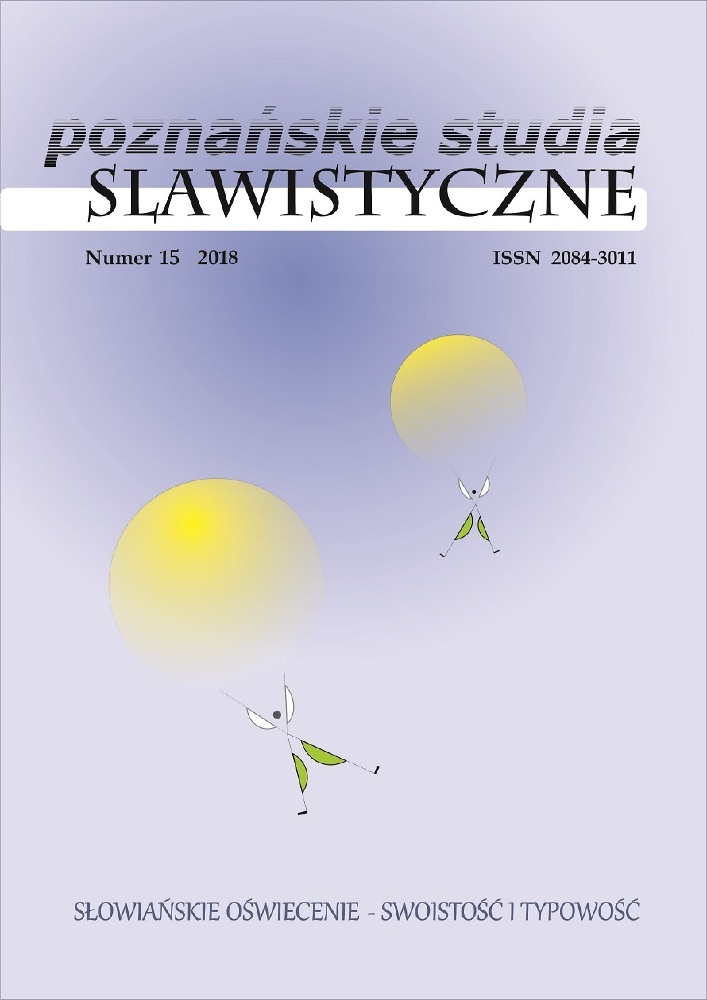No. 15 (2018)
Published 2019 March 28
Słowiańskie oświecenie – swoistość i typowość
15–32
33–50
51–64
65–76
77–97
99–116
117–132
133–147
149–171
173–192
193–206
207–218
219–231
233–258
OFF-TOPIC
273–286
REVIEWS
307–314
315–327
